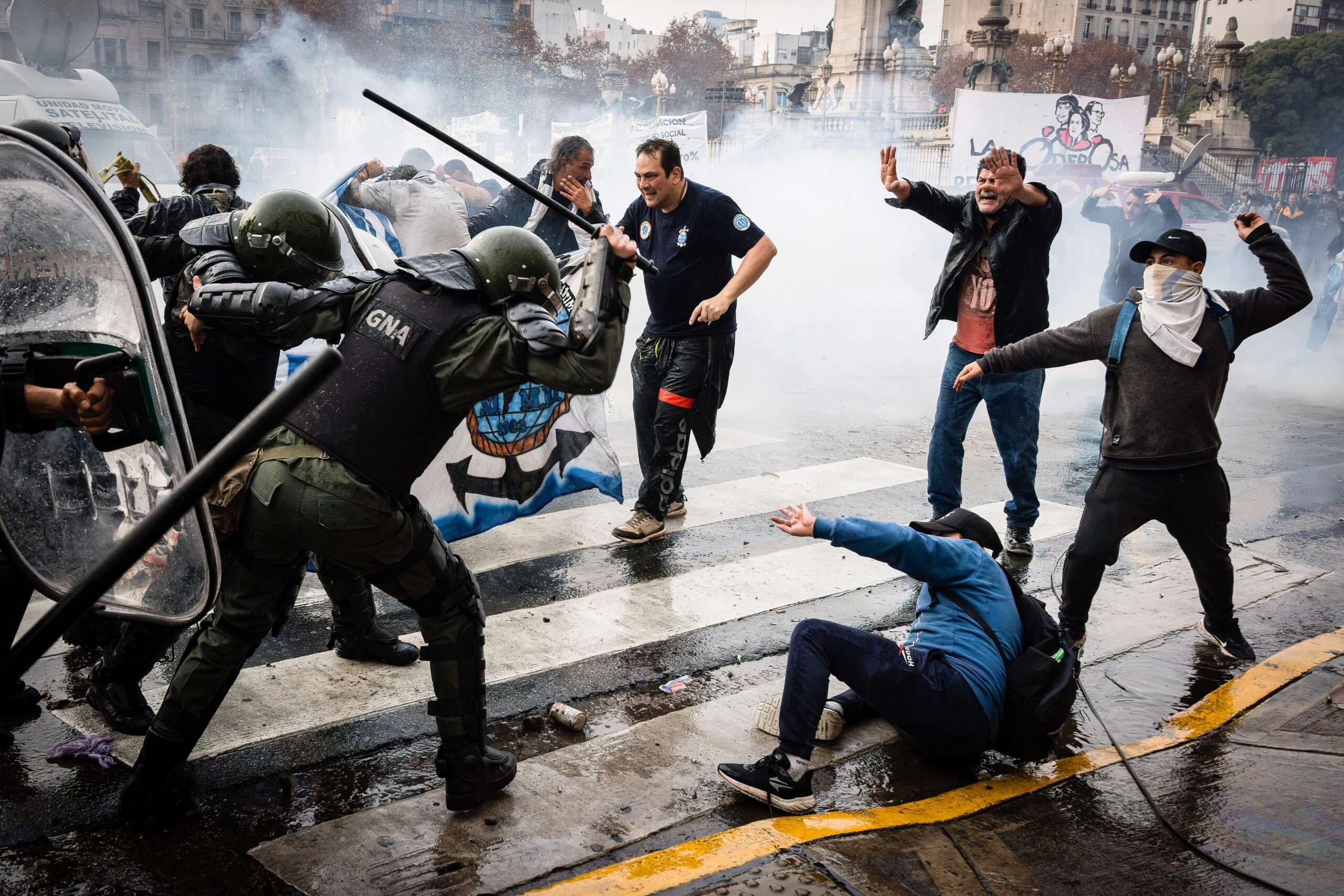The Senate narrowly approved Argentine President Javier Milei’s comprehensive reform package late on Wednesday, amidst violent protests in Buenos Aires.
After an 11-hour debate, senators voted 37–36 in favor of Milei’s tax reforms and an omnibus bill. Vice President Victoria Villarruel cast the decisive vote, breaking the initial tie of 36–36.
Villarruel stated, “For those Argentines who suffer, who wait, who do not want to see their children leave the country…my vote is affirmative.”
Last December, Milei introduced his extensive reform package, aiming to deregulate and reform labor, commerce, real estate, and health care. The bill also proposes a declaration of “a public emergency in economic, financial, fiscal, pensions, defense, tariff, energy, health, administrative, and social matters until December 31, 2025,” as well as privatizing state-owned enterprises.
However, facing opposition in Congress where Milei’s party is in the minority, the bill was initially rejected in February and later approved in a modified form in late April, reducing the number of articles from over 600 to 232.
During the Senate voting, some elements of the bill, including the plan to privatize the state-run airline, Aerolíneas Argentinas, were removed.
During his first six months in office, Milei has focused on deregulating the economy and cutting public spending through executive power. The successful Senate vote marks an initial legislative victory for the president.
The bill will now undergo voting on each individual article, expected to last through Thursday night, before a final vote in the lower house. Its implementation is highly likely at this point.
Following the vote, the president’s office released a statement claiming the reforms as a step towards abandoning “policies of failure and misery,” positioning Argentina on the path to prosperity and growth.
Meanwhile, protesters gathered outside the National Congress building, protesting against Milei’s shock measures and urging senators to reject his proposals, chanting, “Our country is not for sale!” and “We will defend the state!”
The protests turned violent, leading to clashes between police and demonstrators. Protesters threw sticks, stones, and Molotov cocktails, while some set overturned cars on fire. One protester was found “with a grenade,” according to the minister of justice and security for Buenos Aires, Waldo Wolff.
In response, riot police used water cannons, pepper spray, and tear gas to disperse the crowds, resulting in over a dozen arrests.
The violence caused injuries, with at least 20 police officers and five opposition lawmakers receiving medical attention. The lawmakers, pepper-sprayed by police, were transported to the hospital, as reported by the Peronist party Unión por la Patria.
Milei’s office condemned the protests, labeling the demonstrators as “terrorists” attempting a coup d’état by disrupting Congress.
During a conference in Buenos Aires on Wednesday, Milei stated, “The only thing the old guard knows how to do is put spokes in the wheel. We are going to change Argentina, we are going to make it the most liberal country in the world.”






